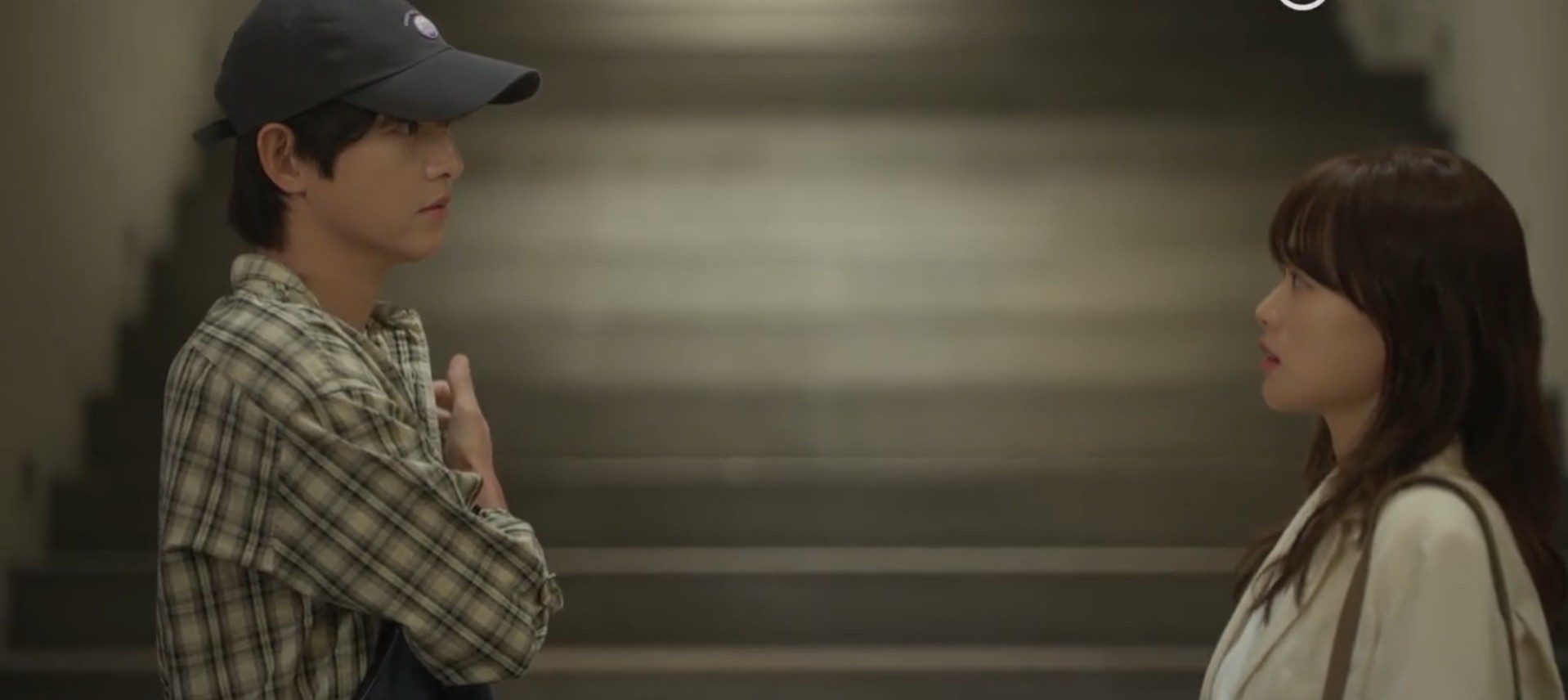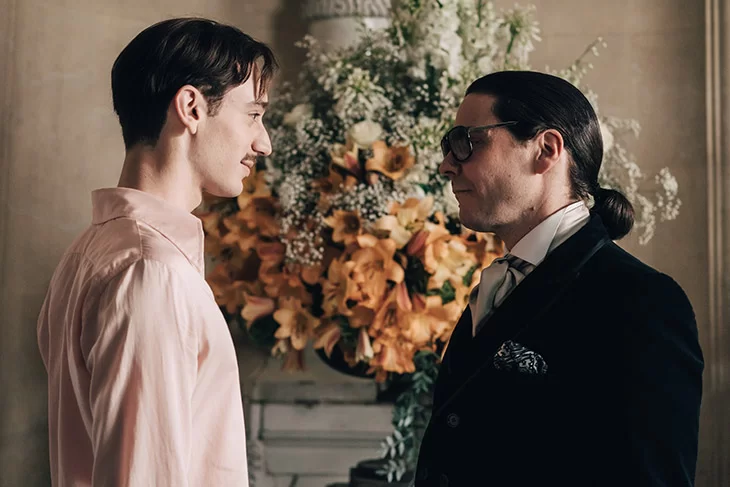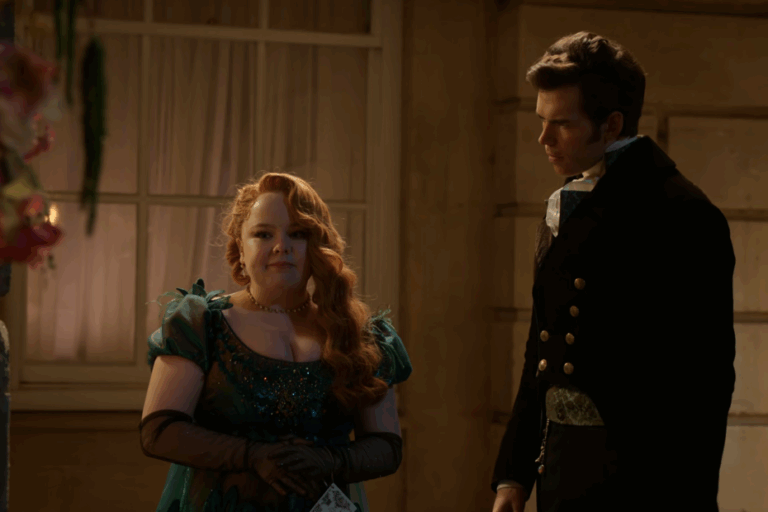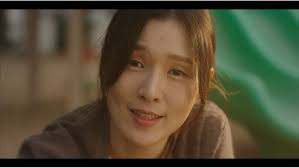My Youth Episode 1 Review
The drama “My Youth” begins by introducing the protagonist, Sunu, a former child actor known as Tanu, who now runs a flower shop. The story opens with a glimpse into Sunu’s past, where he received an award for being the best child actor but is now seen dealing with a somber atmosphere at a funeral hall, indicating a troubled present. The female lead, Jeyn, is also introduced, portrayed as a manager involved in casting and production. She is determined to bring Sunu back into the acting world despite his reluctance.
The narrative unfolds with Jeyn investigating Sunu’s current life, noticing his flower shop and recognizing him through subtle signs like his bracelet. Meanwhile, the drama explores the dynamics between Jeyn and other characters, including the actress Tairin, whose manager is Jeyn herself, and a director named Jo, who is involved in last-minute script changes, reflecting the chaotic nature of showbiz.
Sunu’s close friend Jiono provides comic relief and support but faces his own challenges, including a risky encounter involving a reckless driver that results in lost alcohol meant for their celebration. The story also explores the tensions and rivalries between characters, such as between Jeyn and Tairin, and the difficulties Sunu faces, both from external pressures and his own internal conflicts.
The plot thickens as Jeyn tries to arrange a meeting between Tairin and a producer named Jeil, hoping to secure Tairin’s career progression. Jeyn’s complicated past with Sunu begins to unravel, revealing that she once treated him harshly, which adds emotional depth to their interactions.
Throughout the episode, multiple layers of the characters’ lives are shown — from Sunu’s efforts to maintain his flower shop and stay away from acting, to Jeyn’s persistence in pushing him back into the spotlight, and the pressure from the industry’s producers and directors.
The episode ends with a significant meeting involving Sunu, Jeyn, and a fan of Sunu named Muyeong, who is also connected to the producer Jeil. This meeting creates tension and opens up new storylines about identity, fame, and personal growth. The episode concludes with a poignant moment between Sunu and Jeyn, hinting at unresolved feelings and the potential for future collaboration or conflict.
Highlights
- Introduction of Sunu, a former child actor running a flower shop, showcasing his struggle between past fame and present life.
- Jeyn’s role as a manager trying to bring Sunu back into the entertainment industry despite his resistance.
- Intense behind-the-scenes drama involving last-minute script changes and power struggles in the world of acting.
- Comedic yet tense scenes with Sunu’s friend Jiono, highlighting friendship amid chaos.
- Emerging emotional conflict between Sunu and Jeyn due to their complicated past and current interactions.
- The introduction of Muyeong, a fan and aspiring novelist, linking personal and professional worlds.
- The episode ends with a suspenseful meeting between characters that sets the stage for future developments.
Key Insights
- The Duality of Fame and Normalcy: Sunu’s character represents the common struggle of child actors who find it difficult to transition to normal life after early fame. His shift from acting to running a flower shop symbolizes his desire for stability and escape from the public eye, yet the past continues to influence his present. This duality forms the emotional core of the drama, highlighting themes of identity and redemption.
- Industry Pressures and Chaos: The depiction of last-minute script changes and casting tensions exposes the harsh realities of the entertainment industry. It shows how actors and managers must navigate unpredictable and often unfair situations, reflecting the instability behind the glamour of showbiz. This adds realism and depth to the narrative, making the viewer empathize with the characters’ struggles.
- Complex Relationships and Power Dynamics: Jeyn’s role as both manager and someone with a personal history with Sunu introduces layers of complexity. Their past conflicts and current interactions reveal how professional and personal lives often intertwine in the entertainment world, leading to misunderstandings, emotional pain, and opportunities for growth.
- The Theme of Redemption and Forgiveness: Jeyn’s regret over how she treated Sunu in the past and her efforts to mend their relationship suggest a theme of redemption. The drama explores how people can change and seek forgiveness, emphasizing emotional healing as a key aspect of the storyline.
- Intersection of Art and Life: The inclusion of Muyeong, a fan and novelist connected to the producer Jeil, introduces a meta-narrative about storytelling, fame, and the impact of art on life. It hints at the power of narratives to shape identity and destiny, as well as the challenges faced by emerging artists.
- Support Systems and Friendship: Jiono’s character provides a supportive presence for Sunu, highlighting the importance of friendship in difficult times. Despite comedic elements, his role underscores loyalty and care, which are crucial for the protagonist’s journey.
- Symbolism of Flowers and Growth: The recurring motif of flowers and Sunu’s flower shop serves as a metaphor for growth, nurturing, and new beginnings. It contrasts with the harshness of the entertainment world and symbolizes hope and the possibility of healing beyond past trauma.
Detailed Analysis
The episode skillfully interweaves multiple storylines that reflect both the internal and external conflicts faced by the characters. Sunu’s reluctance to return to acting is not just professional hesitation but deeply rooted in his past experiences and emotional scars. His flower shop is both a literal and symbolic manifestation of his wish to cultivate a peaceful life away from the spotlight, yet the industry’s persistent demands pull him back.
Jeyn acts as a catalyst in Sunu’s life, pushing him to confront his past while also wrestling with her own guilt and fears. Her management of Tairin’s career and her negotiations with producers reveal the cutthroat nature of the entertainment business. The introduction of last-minute script rewrites and disputes between directors and actors showcases the volatility behind creative productions, making the viewer aware of the precariousness of the profession.
The dynamics between Sunu and Jeyn are rich with tension and unresolved emotions. Their interactions suggest a shared history marked by misunderstanding and pain but also the possibility of reconciliation. This adds emotional weight to the narrative and keeps the audience invested in their evolving relationship.
The subplot involving Muyeong, the fan and novelist, broadens the scope of the drama. It introduces themes of fandom, artistic creation, and identity. Muyeong’s connection to the producer Jeil and her admiration for Sunu create a layered narrative about how public figures influence and inspire others, while also dealing with their own challenges.
Furthermore, the episode does not shy away from depicting the harsh realities of everyday life. Jiono’s near accident and the loss of alcohol meant for celebration bring moments of levity but also underline the unpredictability and fragility of life. These moments contrast with the high-stakes drama of the entertainment world, grounding the story in relatable human experiences.
The symbolism of flowers runs throughout the episode, with Sunu’s flower shop representing a space of care, growth, and renewal. This symbolism resonates with the characters’ journeys toward healing and finding their place in the world, suggesting that despite setbacks and pain, there is always room for new beginnings.
Overall, the episode establishes a strong foundation for the series, blending emotional depth, industry insight, and character-driven drama. It promises complex character arcs, interpersonal conflicts, and a nuanced exploration of fame, identity, and redemption.
Conclusion
Episode one of “My Youth” effectively sets up a compelling drama centered around Sunu, a former child star grappling with his past and present, and Jeyn, his determined manager with a complicated history with him. The story deftly combines elements of personal growth, professional challenges, and emotional reconciliation, against the backdrop of the entertainment industry’s unpredictable nature. Through rich character development, symbolic motifs, and intersecting narratives, the drama promises an engaging exploration of youth, ambition, and healing.






